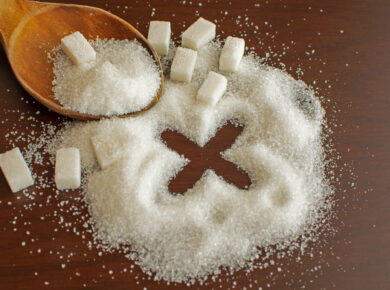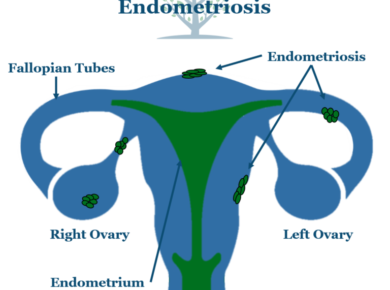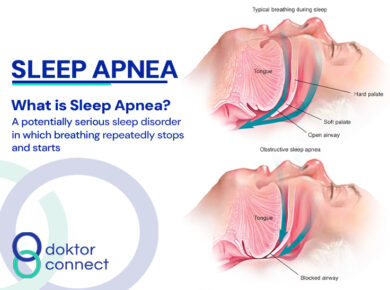Odontalgia is the medical term for toothache. it could be described as pain in or around your tooth.
About 5 to 88% of people have complained or suffered from dental pain. Like most of us when we get this symptom we are wondering,
‘Oh! Why does this tooth hurt so much?’
‘What can I do about this pain’?
Toothache has several causative factors, so read along as we explore the causes of toothache and how it can be prevented.
What Causes Toothache?
The pulp inside the tooth is a soft material filled with nerves, tissues, and blood vessels. These pulp nerves are among the most sensitive in the body. When these nerves are irritated or infected by bacteria (abscess), they can cause severe pain. A dentist is always recommended whenever you feel such pain in your tooth if you feel any of these symptoms below.
Toothache can be caused by several things that can cause inflammation or pain on the teeth and gum, such as,
Tooth decay
Tooth decay is the most common cause of toothache. It is damage to a tooth caused by dental plaque turning sugar into acids.
If plaque is allowed to build up, it can lead to problems, such as holes in the teeth (dental caries) and gum disease so dental abscesses, which are collections of pus at the end of the teeth or in the gums, may develop.
Dental abscess
A dental abscess is a collection of pus that can form inside the teeth, in the gums, or in the bone that holds the teeth in place. It’s caused by a bacterial infection.
An abscess at the end of a tooth is called a periapical abscess. An abscess in the gum is called a periodontal abscess.
Dental abscesses are often painful, but not always. In either case, they should be looked at by a dentist.
It’s important to get help as soon as possible, an abscess does not go away on its own.
They sometimes spread to other parts of the body and make you ill.
Sinusitis
This is a condition in which your sinuses become inflamed due to a viral, bacterial, or fungal infection in your sinus cavity and because the roots of your upper teeth are close to your sinuses, sinusitis can cause pain in your upper teeth.
A cracked or damaged tooth
A cracked tooth can result from chewing on hard foods, grinding your teeth at night, and can even occur naturally as you age. It’s a common condition and the leading cause of tooth loss in industrialized nations, this could cause pain when chewing or biting, especially when you release the bite.
A loose or broken filling
If you have a broken or loose filling you should call your dentist as soon as possible. Don’t wait too long. Having a broken or loose filling may allow debris and saliva to seep down between the filling and the tooth, which can lead to tooth decay. Over time, a worn-out filling can let in bacteria and lead to further decay that can infect the dental pulp (which contains the tooth’s nerves and blood supply), which often results in the need for a root canal treatment or possibly the loss of the tooth.
Gum disease
It is also called periodontal disease, affects more than 47 percent of adults. Gum disease is called gingivitis in its early stages, and some people don’t even know that they have it. Sensitive teeth and gums can be a sign of escalating gum disease.
An infection
This often happens when a tooth (such as a wisdom tooth) has broken the skin but does not have enough room to fully come through
How to prevent toothache
The best protection one can have from toothaches is to take proper care of their teeth and gums. Doing so keeps the mouth healthy, which, in turn, protects the tooth against tooth decay. Here are some simple things anyone can do to reduce the risk of developing toothaches.
Brush twice daily
Brushing is the most important thing a person can do when it comes to keeping the mouth healthy. It is performed to remove plaque and food particles from teeth surfaces. Plaque houses bacteria and these organisms convert food particles into acids that damage teeth. When left on teeth surfaces for extended periods, plaque will eventually calcify and turn into tartar. Like plaque, tartar facilitates tooth decay, but it cannot be removed by brushing or flossing.
Flossing daily

Flossing serves the same purpose as brushing. It removes food particles and plaque from teeth surfaces. Since the bristles of a toothbrush cannot reach the tight spaces between teeth, dental floss is used to clean these areas. Failing to floss leaves a person susceptible to tooth decay regardless of how often they brush their teeth. Tooth decay is one of the most common causes of toothache pain.
Limit sugary foods and drinks
One of the most damaging things a person can expose teeth to is sugar. It has an acidic nature, and it loves to cling to teeth surfaces. Oral bacteria also love sugar since they consume it and convert it to acids. People who consume lots of sugary drinks and foods regularly are more susceptible to tooth decay. Patients are advised to keep the sugar consumption to a minimum to keep toothache pain at bay. When one does consume something sugary, dentists recommend rinsing the mouth out with water afterward.
Drink lots of water
Drinking lots of water is great for a person’s overall health, and it is just as good for dental health. Water helps to clean the mouth, rinsing away sugar, food particles, and debris. Drinking water throughout the day helps to prevent the things that can damage teeth from contacting them.
Visit a dentist once a year
Regular dental visits go a long way when it comes to preventing toothaches. Most dental issues that lead to toothaches have symptoms that can be noticed by a dentist during a routine checkup. Regular dental visits give the dentist a chance to fix developing problems before they lead to pain. Get access to a dentist visit by subscribing to the Doktorconnect premium plan.






